


Numerous web sites, Internet Movie Data Base - Billy Joel, Active Musician - Billy Joel Discography, AOL Music - Billy Joel, Starpulse.com - Billy Joel Discography, Rock And Roll Hall Of Fame - Billy Joel & Billy Joel - Official Web Site were quite helpful in preparing my tribute to Billy Joel. Please click on the hyperlinks to enjoy these web sites.
William Martin Joel, a classically trained pianist, “The Piano Man” was born 9 May 1949, Bronx, New York, USA. Joel was raised in the Long Island suburb of
While still a member of The Echoes, Joel began playing recording sessions in 1965, when he was just 16 years old. Joel played piano on several recordings George "Shadow" Morton produced -- including the Shangri-Las' "Leader of the Pack" -- as well as several records released through Kama Sutra Productions. During this time, The Echoes started to play numerous late-night shows.
Later in 1965, The Echoes changed their name twice -- once to the Emeralds and finally to the Lost Souls. For two years, he played sessions and performed with the Lost Souls. In 1967, he left the band to join the Hassles, a local
Joel also wrote rock criticism for a magazine called Changes and played on commercial jingles, including a Chubby Checker spot for Bachman Pretzels. Joel returned to playing music in 1971, signing a deal with Family Productions. Under the terms of the contract, Joel signed to the label, for life; the pianist was unaware of the clause at the time, but it would come back to haunt him -- Family Productions received royalties from every album Joel sold until the late '80s. Joel refashioned himself as a sensitive singer/songwriter for his debut album, Cold Spring Harbor, which was released in November of 1971. Due to an error in the mastering of the album, Cold Spring Harbor was released a couple of tape speeds too fast; the album remained in that bastardized form until 1984. Following the release of the album, Joel went on a small live tour, during which he would frequently delve into standup comedy.
On December 1, 1972: Having moved to the West Coast, a dispirited Billy Joel begins a six-month stint as a lounge pianist under the name Bill Martin. He encapsulates the experience in a song that will serve as his creative and commercial breakthrough, “Piano Man.” At the beginning of 1973, a radio station began playing a live version of "Captain Jack" that was recorded at a
By the end of 1973, Billy Joel's first album for Columbia Records, Piano Man, had been released. The record slowly worked its way up the charts, peaking at number 27 in the spring of 1974. The title track -- culled from experiences he had while singing at the Executive Room -- became a Top 40 hit single. At the end of the summer, Joel assembled a touring band and undertook a national tour, opening for acts like the J. Geils Band and the Doobie Brothers. By the end of 1974, he had released his second album, Streetlife Serenade, which reached number 35 early in 1975. After its success, Joel signed a contract with James William Guercio and Larry Fitzgerald's management company, Caribou, and moved from
Turnstiles stalled on the charts, only reaching number 122. Joel's next album would prove to be the make-or-break point for his career, and the resulting album, The Stranger, catapulted him into superstardom. The Stranger was released in the fall of 1977. By the end of the year, it peaked at number two and had gone platinum, and within the course of a year, it would spawn the Top 40 singles "Just the Way You Are" -- which would win the 1978 Grammy for Record of the Year and Song of the Year -- "Movin' Out" "She's Always a Woman," and "Only the Good Die Young." Over the next two decades, the album would sell over seven million copies. "Just the Way You Are" is one of the most covered and radio played songs of all-time. His Stranger album was the most successful album in Columbia Records history at the time.
Joel followed The Stranger with 52nd Street, which was released in the fall of 1978. 52nd Street spent eight weeks at number one in the
In the spring of 1980, Joel released Glass Houses, theoretically a harder-edged album that was a response to the punk and new wave movement. Glass Houses reached number one in America, where it stayed for six weeks; the album spawned the Top 40 singles "You May Be Right" (number seven), "It's Still Rock'n'Roll to Me" (number one), "Don't Ask Me Why" (number 19), and "Sometimes a Fantasy" (number 36) and won the 1980 Grammy for Best Rock Vocal Performance, Male. In the fall of 1981, Joel released Songs in the Attic, a live album that concentrated on material written and recorded before he became a star in 1977. The album's "Say Goodbye to
Songs in the Attic bought Joel some time as he was completing an album he had designed as his bid to be taken seriously as a composer. His new album, The Nylon Curtain, was finally released in the fall. A concept album about baby boomers and their experiences, the album earned him some of his better reviews, as well as spawning the Top 20 hits "Pressure" and "Allentown." Joel quickly followed the album in 1983 with the oldies pastiche An Innocent Man.
An Innocent Man restored Joel to his multi-platinum status, eventually selling over seven million copies and spawning the hit singles "Uptown Girl" (number three), "Tell Her About It" (number one), "An Innocent Man" (number ten), and "Keeping the Faith" (number 18). Several of the songs on the album were about model Christie Brinkley, who was engaged to Joel by the time the album was released. During 1983 and 1984, Joel became one of the first '70s stars to embrace MTV and music videos, shooting a number of clips for the album that were aired frequently on the network. Brinkley and Joel were married in the spring of 1985.
Joel released a double-album compilation, Greatest Hits, Vols. 1 & 2 in the summer of 1985. Two new songs -- the Top Ten "You're Only Human (Second Wind)" and the Top 40 "The Night Is Still Young" -- were added to the hits collection; the album itself peaked at number six and would eventually sell over ten million copies. In the summer of 1986, Joel returned with the Top Ten single "Modern Woman," which was taken from the soundtrack of Ruthless People. "Modern Woman" was also a teaser from his new album, The Bridge, which was released in August. The Bridge was another success for Joel, peaking at number seven, selling over two million copies, and spawning the Top 40 hits "A Matter of Trust" (number ten) and "This Is the Time" (number 18), as well as "Big Man On Mulberry Street," which was used as the basis for an episode of the popular Bruce Willis/Cybill Shepherd television series Moonlighting.
In the spring of 1987, Joel embarked on a major tour of the U.S.S.R. His
Joel released his 12th studio album, Storm Front, in the fall of 1989. It was preceded by the single "We Didn't Start the Fire," whose lyrics were just a string of historical facts. The single became a huge hit, reaching number one and inspiring history students across
During 1990, Joel undertook a major
Following the Storm Front world tour, Joel spent the next few years quietly. In 1991, he was awarded an honorary doctorate by
Billy Joel was inducted in the Songwriters Hall of Fame 1992. He writes all of his songs single-handedly.
He ditched writing new pop music to compose classical music instead during the mid 90s. Billy's half-brother is the famous concert pianist Alexander Joel. Joel still performs pop songs at his concerts.
Joel returned in the summer of 1993 with River of Dreams, which entered the charts at number one and spawned the Top Ten title track. In 1996, he gave a series of lectures at a variety of American colleges. Billy Joel was inducted into the Rock And Roll Hall Of Fame - Billy Joel, as a performer, on March 15, 1999, at the fourteenth annual induction dinner. Ray Charles is his presenter. He performed at the 1999 New Year's Eve Party in
His next studio record, Fantasies & Delusions, arrived in 2001 and was his first album of his own classical compositions. A year later, Twyla Tharp choreographed and directed Movin' Out, a Broadway musical based on Joel's music. It received 10 Tony nominations for the 2003 Tony Awards including: Best New Musical, Best Performance by a Leading Actor in a Musical, Best Performance by a Leading Actress in a Musical, Best Performance by a Featured Actor in a Musical, Best Performance by a Featured Actress in a Musical, Best Direction of a Musical, Best Choreography, and Best Orchestrations. Out of the 10 nominations "Movin' Out" received two Tony's, one went to Tharp for Best Choreography, and the other went to Joel himself for Best Orchestrations.
Joel was awarded a star on the Hollywood Walk Of Fame in 2004. It is placed outside Pantages Theatre on
In November of 2005, his four-CD/one-DVD career retrospective My Lives was released. Live in Madison Square Garden NYC and the accompanying 12 Gardens Live arrived in 2006.
Joel's music consistently demonstrates an affection for Beatlesque hooks and a flair for Tin Pan Alley and Broadway melodies. His diverse influences include Beethoven, Frankie Valli, Paul McCartney, The Beatles, Phil Spector, Ray Charles, Burt Bacharach, Dave Brubeck, George Gershwin, and Fats Domino, whom Joel inducted into the Hall of Fame in 1986. His daughter, with Christie Brinkley, Alexa Ray Joel, was named after piano legend Ray Charles. His fusion of two distinct eras made him a superstar in the late '70s and '80s, as he racked an impressive string of multi-platinum albums and hit singles.
As an artist, Joel has stated that his goal is to make music that “meant something during the time in which I lived...and transcended that time.” Joel’s popularity is such that he tied the Beatles for the most multi-platinum albums in the
From romantic balladry to hard-rocking material, with elements of jazz, pop and soul thrown into the mix, Joel has applied his skills in a diversity of settings. He is the pop crooner of “Piano Man” and the jazz-tinged romantic of “Just the Way You Are.” Yet he’s also capable of harder-rocking fare (Glass Houses), production-heavy pop with a Sixties influence (The Nylon Curtain) and vocal-group soul and doo-wop (An Innocent Man). Joel is one of the very few artists to have top ten hits in the 70s, 80s, and 90s.
Subsequently, Joel has toured with Elton John and on his own. Billy Joel is currently on tour, and will be the final concerts at Shea Stadium, in Flushing,
Discography:
12 Gardens Live - Release Date: June 13, 2006
My Lives (2005)
Movin' Out (2002)
Piano Man/52nd Street/Kohuept (Live)... (2002)
The Essential Billy Joel (2001)
Fantasies & Delusions - Release Date: September 28, 2001
2000 Years: The Millennium Concert - Release Date: May 02, 2000
The Bridge/Storm Front... (1998)
Greatest Hits Vol. 3 (1997)
The Complete Hits Collection 1973-97 (1997)
Greatest Hits Volume III (1997)
River of Dreams - Release Date: August 10, 1993
Storm Front - Release Date: 1989
KOHUEPT (Live in Leningrad) - Release Date: 1987
Bridge - Release Date: 1986
Greatest Hits Vols. 1 & 2 (1985)
Innocent Man - Release Date: 1983
Nylon Curtain - Release Date: 1982
Songs in the Attic - Release Date: 1981
Glass Houses - Release Date: 1980
52nd Street - Release Date: 1978
Stranger- Release Date: 1977
Turnstiles - Release Date: 1976
Streetlife Serenade - Release Date: 1974
Piano Man - Release Date: 1973
Cold Spring Harbor - Release Date: 1971
Billy Joel has a lot of quality songs, such as Allentown, Big Man On Mulberry Street, Goodnight Saigon, Movin' Out, My Life, New York State Of Mind, Pressure, Uptown Girl, and Baby Grand, with the legendary, Ray Charles, among others…
Thank you, Billy, for some great music…

















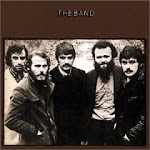



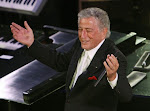







































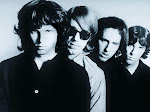
























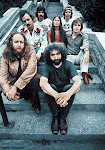




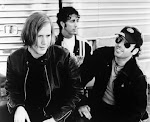

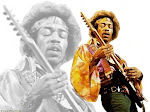









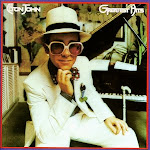




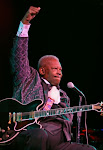


















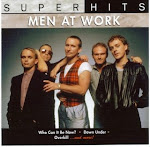%2B-%2BRock.jpg)

















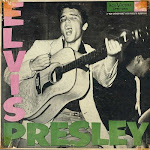



















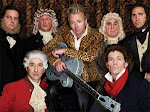




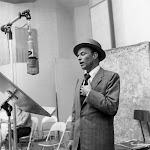















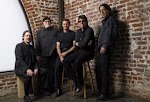




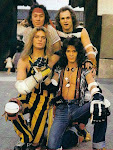











No comments:
Post a Comment